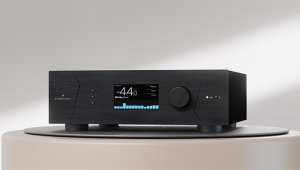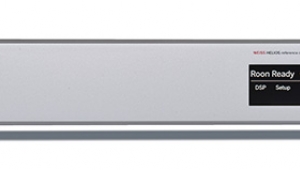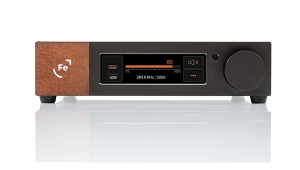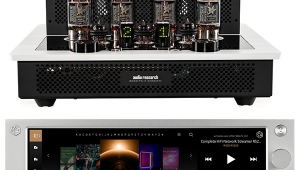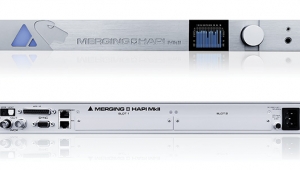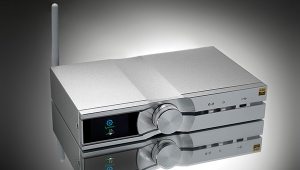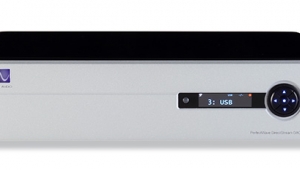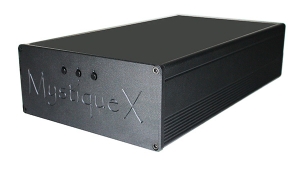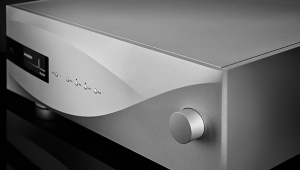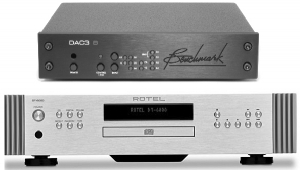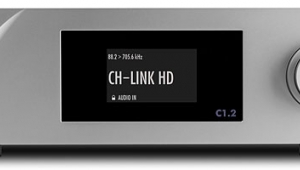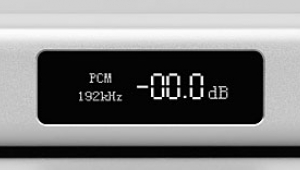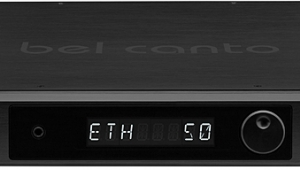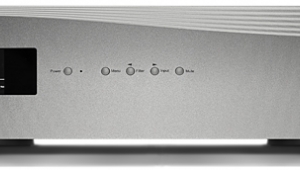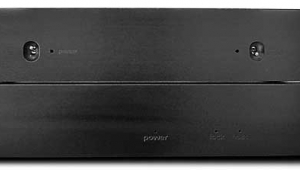| Columns Retired Columns & Blogs |
Meridian 518 Digital Audio Processor John Atkinson Follow-Up July 1996
John Atkinson wrote again on the Meridian 518 in July 1996 (Vol.19 No.7):
Reader Gregory Comnes of Tampa, Florida took exception to my January 1996 review of the $1650 Meridian 518 Digital Audio Processor (Vol.19 No.1, p.249): "Shame on you for missing the point..." he thundered. "You allude to Meridian's claim that, when used as a digital preamp, the 518 can sound 'frighteningly good,' but you didn't have time to use it as a preamp! How long could it have taken to hear what for most of is the most compelling reason for CD-only users to own this piece: the elimination of a compromising analog stage?"
With apologies for the lateness of this Follow-Up, here is my opinion on the sound of the Meridian 518, used as a "preamp" between Mark Levinson No.31 CD and Panasonic SV-3700 DAT sources and my Mark Levinson No.30.5 processor, which in turn fed a Mark Levinson No.333 power amp driving Wilson WITT speakers. Interconnects were balanced AudioQuest Lapis; speaker cables were MIT MH-770 CVT. The Meridian was set to take in 16-bit words and output 20-bit words using its Shape D noise-shaping—note that your DAC must have an internal data path with more than 16 bits—and was used to adjust volume and to switch between the two sources.
The sound was indeed "frighteningly" good! All audiophiles say that what they want is "accuracy," but then there is nowhere for problems to hide. Is that what we really want? I was reminded of the scene between Tom Cruise and Jack Nicholson in A Few Good Men, where Cruise explains that he is just looking for the truth. "The truth!" bellows Colonel Jack. "You can't handle the truth!"
Without an analog preamp, even an excellent one, in the chain, I was more aware of recorded background noises that had previously gone unnoticed. On Stereophile's Robert Silverman Liszt CD, for example, there are some children playing in the far distance at the end of Liebestraum. They don't get in the way of the music—but I'd never heard them before. On old recordings, like a 1960s Delius collection (EMI Studio CDM 7 69534 2), I started to hear things, like analog tape squashing, that used to be smeared over into pleasantness.
But on high-quality recordings—the new Brahms Violin Sonata reading from Arturo Delmoni on John Marks Records (JMR 2), for example—the Meridian 518 just allowed the music to soar, sweeping me away with it. It doesn't get any better than this!
At 0dB (unity gain), I could hear no difference between the Meridian 518 in the chain or out, other than the general improvement in the sound's tangibility that I reported on in January. However, I found that adjusting the volume below -12dB took away some of the magic. (Some of it could be recovered by setting the 518 to add pre-emphasis.) Whether you can get away with this limited volume-range adjustment will depend on the gain structure of your system. With the relatively low-sensitivity WITTs, 0dB was very loud, but not uncomfortably so with pure-sounding recordings. Your mileage may vary, particularly if you have high-sensitivity speakers and a small room. But if you can get away with it, Meridian's 518 digital preamp will take your system to the next level.—John Atkinson
- Log in or register to post comments
